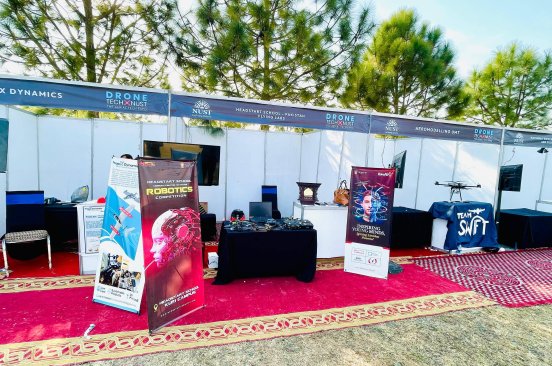
In Nepal, Current & Potential Applications of Medical Drones and Drone Regulations
The workshop aimed to explore the potential uses of drone technology to improve healthcare access and understand the regulatory issues surrounding their use.
April 11th, 2023
Nepal Flying Labs and Options Consultancy organized a workshop, "Current Status and Potential Applications of Medical Drones and Drone Regulations in Nepal," on March 12th at Hotel Himalaya Lalitpur. The workshop aimed to explore the potential uses of drone technology to improve healthcare access and understand the regulatory issues surrounding their use in Nepal. The workshop was part of the "Flying Medical Supplies over Mountains: Embedding Drones in the Health System to Reach the Last Mile" project initiated by the Government of Nepal. The project aims to find a home-grown solution enabling the drone sector to provide tailored services for the context. This workshop was a follow-up to a previous consultative workshop organized by the Ministry of Health and Population (MoHP) that sought to explore the landscape of drone technology.
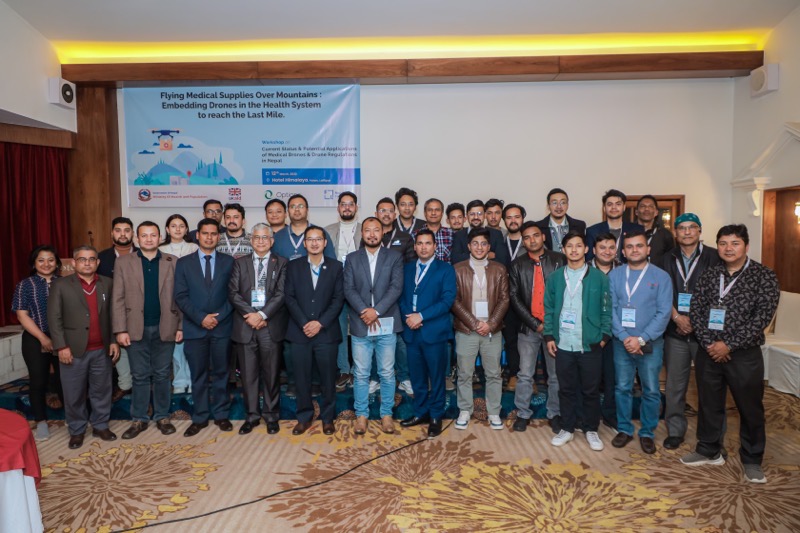
The conference kickstarted with a welcome address by Options and Nepal Flying Labs, who outlined the workshop's objectives. Then, Dr. Madan Kumar Upadhyay from the Ministry of Health and Population made the opening remarks emphasizing the importance of technology, such as drones, to improve access to healthcare in Nepal.
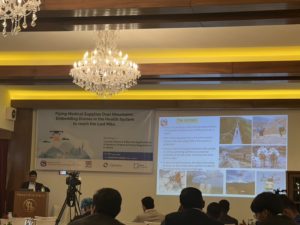
In the workshop, several speakers shared their global experiences using drones in healthcare delivery in the Democratic Republic of Congo (DRC) and India. The keynote speakers, Mr. Olivier Defawe and Mr. Vignesh Santhanam, highlighted the works of organizations like VillageReach to deliver medicine cost-effectively. The presentation provided insight into building a local ecosystem that supports the building, maintenance, and use of drones to deliver medicines through collaboration with government and private sector partners. Another speaker, Mr. Hammad Jeilani, from Apian, also encouraged the audience to learn from countries like Rwanda and Kenya that have partnered with Zipline to integrate drones into their healthcare systems.
The workshop also had informative presentations from government stakeholders on the health sector's needs and potential. Dr. Guna Nidhi Sharma from the Ministry of Health and Population shared the health budget and how drones can help achieve equal access to healthcare, especially in remote areas. Next, Mr. Antosh Pradhan, from the Ministry of Home Affairs, detailed the process of registering a drone and drone permission handling, followed by questions from the audience regarding the challenges and roadblocks they faced. Finally, a representative from the Civil Aviation Authority (CAA), Mr. Samrat Pradhan, focused on the regulations for drone use (e.g., pilot training) and areas where drones can be used.
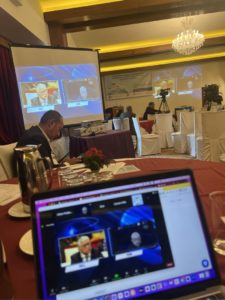
Non-governmental organizations were also present at the workshop.
Mr. Pradeep Poudel from Options, and Mr. Pukar Parajuli, from Nepal Flying Labs, presented their findings from GIS mapping and stakeholder interviews for potential drone delivery in Rukum East and Humla district. Ms. Biva Rajbhandari, from Options, also shared the cost-effectiveness of medical drone delivery services. She said it would cost around 2,000 - 3,000 NPR per package delivery over five years.
The workshop also hosted a panel discussion titled "Drone Ecosystem in Nepal: Current Applications, Opportunities, and Challenges." The panelists included Raju Shrestha, Director, Civil Aviation Authority Nepal; Arjun Poudel, Under Secretary, MoHA; and Dr. Deepak Karki, Health Advisor, BEK, moderated by Prof. Dr. Ramesh Kumar Maskey, NAST. The panel discussed partnering with the private sector, an easier process to fly drones during humanitarian events, security concerns, and aligning government ministries to create an enabling environment for flying drones.
The workshops ended with Mr. Raj Bikram Maharjan, the CEO of Airlift, and Galli Maps, who highlighted issues faced by the private sector regarding drone applications in Nepal.
Overall, the workshop provided an important platform for stakeholders to share and learn from various organizations in and outside of Nepal on drone technology's status and potential use for improving access to healthcare.
Category(s)
Location(s)
Recent Articles
View All »
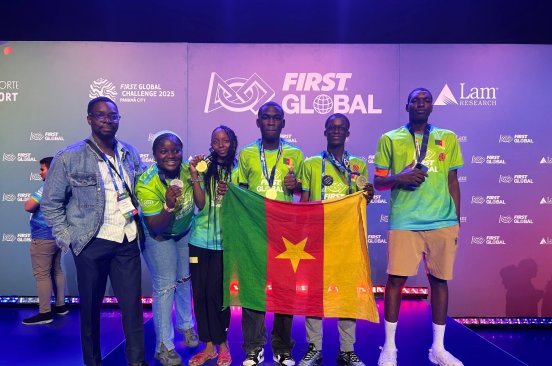
Team Cameroon's Road to Victory at the First Global Robotics Competition 2025
